PROJECT:
Mitchell Creek
Source Tracking
Photo credit: Nate Richardson
Managing bacterial contamination to protect the quality of our waters.
In 2015, The Watershed Center conducted bacteria monitoring on Mitchell Creek, a mid-sized stream located in Grand Traverse County that experiences elevated levels of E. coli. As a result, Mitchell Creek is now listed on the State of Michigan’s Impaired Waters List for bacterial contamination. Mitchell Creek outlets into the east arm of Grand Traverse Bay next to Traverse City State Park Beach and near the city’s drinking water intake. Bacterial contamination is a concern for public health, especially if it comes from human sources such as septic systems.
In partnership with Michigan State University, East Bay Township, Charter Township of Garfield, the City of Traverse City, and the Grand Traverse County Health Department, we conducted a microbial source tracking study on Mitchell Creek to identify the potential sources of bacterial contamination. Our main objective was to determine if septic systems are impacting Mitchell Creek.
From 2021-2023, surface water and groundwater testing for fecal indicators (including E. coli) and other microbial source tracking genetic markers was conducted at various locations along Mitchell Creek during both wet and dry weather. Source tracking markers analyzed included human, cow, pig, canine (including dog, fox, and coyote), and gill sources.
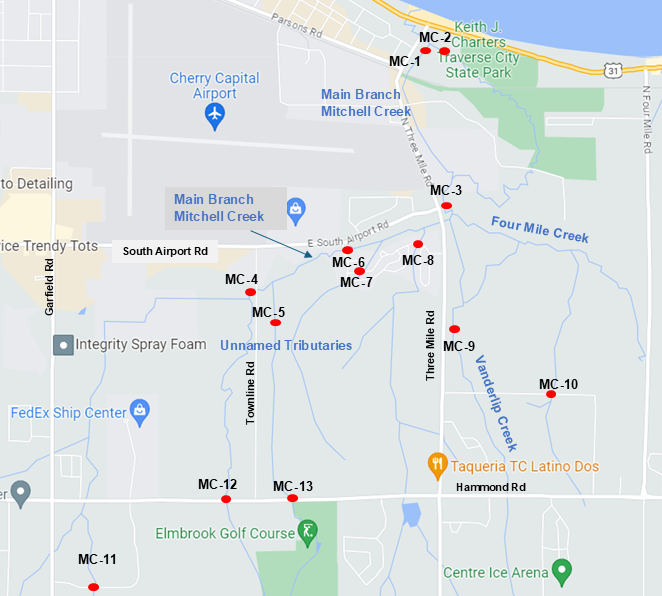
Project Status: complete
Project partners:
- Michigan State University
- East Bay Township
- Charter Township of Garfield
- City of Traverse City
- Grand Traverse County Health Department
Funding sources:
- Michigan Department of Environment, Great Lakes and Energy’s Nonpoint Source Program by the United States Environmental Protection Agency
- East Bay Township
- Charter Township of Garfield
- City of Traverse City
Total project cost:
- $135,250
Study Results
This study found elevated levels of E. coli throughout the Mitchell Creek watershed during both wet and dry weather sampling events. This was expected as previous studies found similar results that led to the creek’s placement on the State’s Impaired Waters List. However, bacteria results were higher and with more widespread levels during rain events. Results also indicate a mix of fresh and aged bacterial contamination sources, indicating that E. coli bacteria has accumulated in creek sediment over time and is being continually released, especially during rain events.
Most of the bacterial contamination occurs in the western portion of the creek’s watershed, with little to no bacteria, fecal indicators, or source tracking markers found in the eastern tributaries of Vanderlip and Four Mile creeks. Additionally, the headwater areas of the western tributaries (south of Hammond Road) do not appear to have consistent bacterial contamination issues.
While this study did not find any conclusive evidence and specific locations of bacterial sources that need immediate remedy to reduce bacterial input to the creek, several bacterial sources are of concern in different areas. The western tributaries had more samples containing the pig marker, while the human marker was found more in the central main branch. The canine marker was widespread in all tributaries.
More information on this study:
Summary Document | Coastal Grand Traverse Bay Watershed Management Plan
Recommendations
The project team recommends the following best management practices be implemented to reduce existing and/or additional input of bacterial contamination in Mitchell Creek:
- Ensure all farms are following Generally Accepted Agricultural Management Practices (GAAMP) and implement new agricultural best practices to reduce fecal input to the creek.
- Preserve existing forested and vegetated wetlands that can reduce bacterial in the watershed; restore forested and vegetated wetlands when possible.
- Provide septic system education, including information on system maintenance, properly sizing systems, replacing aged systems, and proper use.
- Provide education regarding the importance of picking up and properly disposing of dog waste.
- Conduct continual maintenance of the City of Traverse City’s sanitary system and extend service to new homes or developments, when possible.
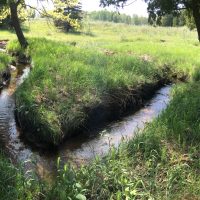
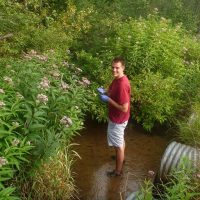
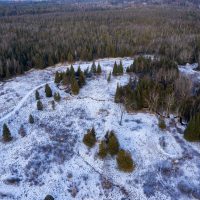
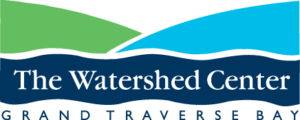

 Donate
Donate